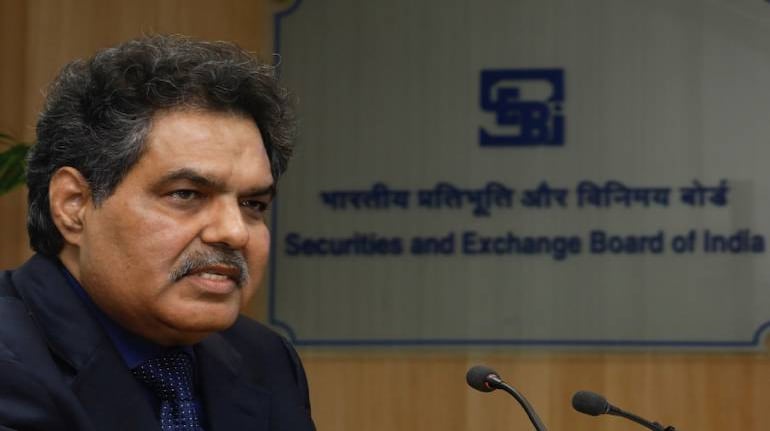



The outgoing chairman of Securities and Exchange Board of India Ajay Tyagi left the conference room at Sebi Bhavan one last time before he returns to Delhi, with no regrets after a five-year stint at the helm.
Tyagi gave an impression of a man who was content as his 38-year stint in civil services reached its end after the government decided not to extend his stay at the most powerful job in India’s capital market by another three years. The role has now been taken up by Madhabi Puri Buch, the former whole-time director of Sebi and a banker.
Tyagi leaves as the third longest-serving head of Sebi since the institution came into existence 34 years ago and a tenure that oversaw one of the biggest financial meltdowns in the Indian economy following the collapse of IL&FS and the COVID-19 pandemic.
Tyagi also oversaw the rise of new-age discount brokers, two of the hottest primary markets in India in 2017 and 2021, listings of startup unicorns in the country, and a surge in participation of retail investors.
His staff expressed a tinge of regret at seeing the man, who captained the ship for long, exit given how highly they rated him. “He was definitely one of the easiest to work within my time here. He allowed you space to do your thing,” said a person working closely with Tyagi at his time in Sebi.
Others expressed a similar sentiment for a “gentleman”, who took up several difficult agendas during his time at the helm. Tyagi said he was in particular satisfied with Sebi’s response to the COVID-19 pandemic and the crisis that befell debt mutual funds post 2018.
The fiasco around several fixed maturity plan schemes of mutual funds deferring timely redemption and the collapse of the credit risk funds of Franklin Templeton during the middle of Tyagi’s tenure.
Sebi introduced several measures that have since strengthened aspects of investor protection in debt mutual fund schemes including restricting sectoral and corporate group exposure and mandating minimum liquidity in debt portfolios.
One of the few regrets Tyagi may have had is that his efforts towards making India’s corporate bond market as strong as those in developed markets did not fully bear fruit in his tenure, but many consider the steps taken by him in that area to be greater than the sum of his predecessors.
Tyagi also vociferously championed the cause of enhancing the protections for retail investors, whose participation boomed in the final two years of his chairmanship.
However, the jury is still out on how effective certain measures taken by the regulator have been including those aimed at safeguarding retail investors against the vagaries of markets through upfront margins in the cash segment given that recent data indicates a rise in participation from such investors in riskier products like equity options.
That said, the closing sentences of Tyagi’s chapter at Sebi will definitely be filled with sadness and controversy given the hullaballoo around corporate misgovernance at the country’s largest stock exchange National Stock Exchange and the regulator’s tinkering of a rule mandating separation of the role of chairman and managing director or CEO in listed companies.
The mystery around the third entity who was guiding former chief executive officer of NSE Chitra Ramakrishna and the blatant violation of processes in the appointment of former chief operating officer Anand Subramanian have shaken the credibility of Indian financial markets.
Many including the finance ministry have questioned the regulator’s role in the case with allegations that Sebi’s penal actions against NSE and its executives in the colocation case were “soft”.
“We had nothing to hide. I reassure all that the orders (Sebi made in the NSE cases) were in the right direction and best of our ability,” Tyagi told the media. Unfortunately for Tyagi’s successor Buch, the NSE case is likely to dominate the first year of her tenure.
Additionally, corporate governance vigilantes have been unimpressed by Sebi’s decision at the last board meeting helmed by Tyagi to make the separation of chairman and MD’s role voluntary. To that, Tyagi said non-compliance in the two-year grandfathering period given by the regulator made it futile to push the envelope beyond a point.
“One has to live in a practical world. You want to be purist but then if something is not working then to push it beyond does not work,” Tyagi said on his decision on the role separation rule.
Tyagi has left the hot seat with some advice on the areas that the new regulator may focus on including improving Sebi’s abilities to improve the execution of its rules, its surveillance capabilities, and reducing the time taken to take orders against offenders.
“I am very satisfied and I carry no secrets,” Tyagi exclaimed as he left the building to never return as its steward.
Discover the latest Business News, Sensex, and Nifty updates. Obtain Personal Finance insights, tax queries, and expert opinions on Moneycontrol or download the Moneycontrol App to stay updated!
Find the best of Al News in one place, specially curated for you every weekend.
Stay on top of the latest tech trends and biggest startup news.